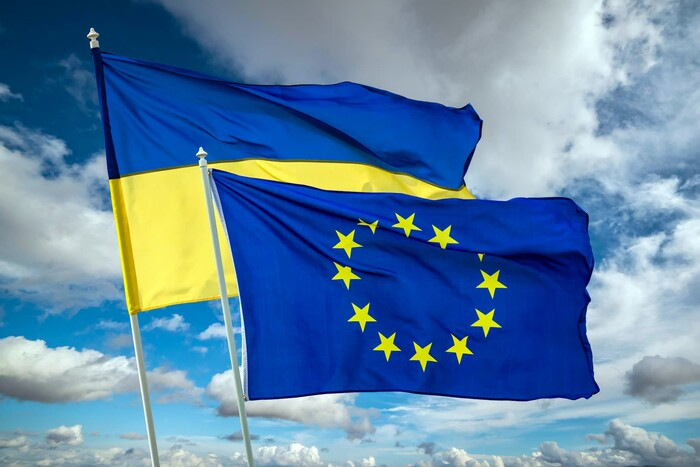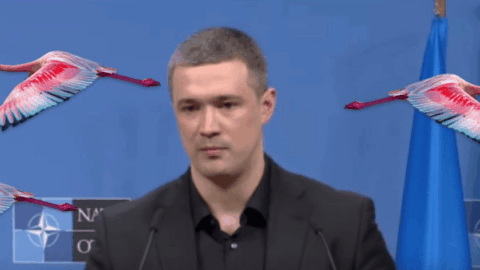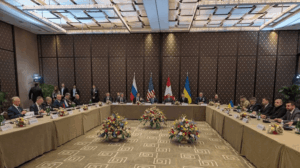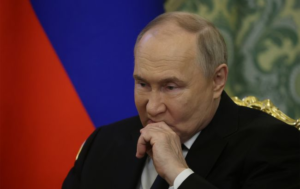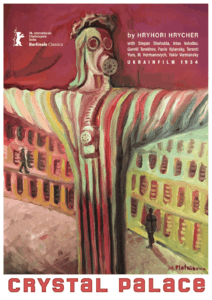NABU maintained its independence from Zelenskyy, and the existence of an independent state institution plays an important role in preserving democracy, even when it operates imperfectly.
The attempt to eliminate this independence fits into the broader pattern of Zelenskyy ignoring laws meant to restrain power from authoritarian tendencies. But that’s not all. Within one week, two events occurred that significantly delay Ukraine’s accession to the EU.
What would you do if you wanted to sabotage Ukraine’s EU accession but didn’t want to announce it openly, keeping in mind Yanukovych’s fate? It’s a difficult question. But if you understand how European bureaucracy works and how negotiations with other countries have been conducted, you can find a way.
Texty reveals.
Government. A two-year pause
Within six days, two events occurred that sharply slow down our European integration.
Moreover, they happened quickly and unexpectedly — at least for most observers, nothing foreshadowed the storm. But it arose suddenly, out of nowhere.
The first event was the government reshuffle on July 17. It postpones EU accession by one to two years. There was much talk about the new government, but this Euro-integration aspect went largely unnoticed. It’s not as interesting to the public as the new-old faces leading ministries. Let us explain how the government change is slowing down our EU accession.
Joining the European Union is a complex negotiation process and an even more complicated implementation of the agreements reached on many points — from the environment and agriculture sector to methods of measuring air pollution or the operation of public transport.
“With the government reshuffle, the negotiation structure with the EU collapsed. Our deputy ministers used to head the working groups. New ministers usually bring in new deputies. On top of that, we managed to merge three ministries again — Economy, Agrarian Policy, and Environment — into one. It takes time to figure out who is responsible for what in the negotiations with the EU. The staff who were leading these negotiations are in shock, not understanding where they are or what they are doing. It will take one to two years to sort this out. This happened in other candidate countries when governments changed. That’s why former negotiators advised us not to change the negotiation institutional structure under any circumstances,” says Liubov Akulenko, Executive Director of the Ukrainian Center for European Policy, which has long been involved in Euro-integration issues.
But the question arises: why change the government? How is the new one different from the old one, if even the ministers are the same, just in different positions?
NABU and SAPO – the red line
The next event took place six days later, on July 22. Unexpectedly, a last-minute amendment was introduced in Parliament to a bill originally intended to make life easier for the families of missing persons. The law was then adopted in the second reading. Afterwards, some MPs — including the original authors of the bill — claimed in the media that they didn’t even understand what they had voted for. But video footage of the “Servants of the People” applauding enthusiastically after the vote suggests they knew exactly what they were doing. Zelenskyy signed it into law almost instantly. This course of events suggests a well-planned operation was being executed.
The amendment was radically revolutionary — or rather, counter-revolutionary: it destroys the independence of the two anti-corruption institutions established after the Revolution of Dignity — NABU (National Anti-Corruption Bureau) and SAPO (Specialized Anti-Corruption Prosecutor’s Office), which had worked in tandem. Much has already been written about this, so we won’t repeat it here.
As of July 23, the Ukraine–EU Roadmap contained no special demands regarding anti-corruption. After all, Ukraine had a strong institutional infrastructure. Now, that infrastructure is gone.
The EU might not explicitly demand that we rebuild it — instead, it could simply drag out the negotiations indefinitely, as it has with Serbia and Turkey. The EU already has an authoritarian and corrupt member — Hungary — so it has little interest in admitting new countries where political leadership attempts to take control of structures designed to prevent authoritarianism, including anti-corruption bodies.
In democratic countries, the independence of the judiciary, prosecution, anti-corruption agencies, central banks, and electoral commissions serves as a safeguard against abuse. It ensures checks on power, effective resistance to corruption, and protection of citizens’ rights — which in turn builds public trust in government.
That’s why it is highly unlikely that the EU will cross its own red line and admit Ukraine without an independent anti-corruption infrastructure. European officials constantly emphasize the importance of this independent anti-corruption component.
If we hypothetically assume that during the negotiations with Russia — which also intensified in recent days — Russia is demanding guarantees that Ukraine will not join the EU, then the lack of independent anti-corruption institutions could serve as one such guarantee. And this might not even be included in any formal agreement. Hopefully, we’re just being overly cautious here.
And so, within six days, we have two events that significantly push Ukraine further away from EU membership.
We cannot yet say definitively that this is Zelenskyy’s deliberate policy — more information is needed. But both the government reshuffle and the dismantling of NABU’s independence align with the established pattern of Zelenskyy’s actions.
The habits of Zelenskyy’s governance
First, the chaos of creating — dissolving — merging — splitting ministries has continued throughout Zelenskyy’s entire term. There has never been any clear logic behind these moves (we’ll be publishing a study on this soon). The latest changes in the government fall under the same tendency to randomly rearrange the furniture in the room just to “let off steam,” while a real understanding of the state of governance has never been the president’s strong suit.
Second, Zelenskyy has a volatile personality, so it’s quite plausible to imagine a situation in which, irritated by NABU’s actions against people in his inner circle — for example, Chernyshov — and sensing that the U.S. has lost interest in Ukraine’s domestic politics, while for the EU it’s enough that we simply hold the line rather than continue developing as a democracy and future EU member, he decides to pull out the thorn that makes his life uncomfortable. And he does so in his usual way — by ignoring the law.
Here are a few recent examples of such prior behavior: the head of the Bureau of Economic Security (BES) has not been appointed, despite having won the competition and passed the selection process. In general, most civil service appointment competitions under Zelenskyy’s administration are ignored (read more here and here); sanctions were imposed on opposition politician Petro Poroshenko without a court decision; six judges of the Constitutional Court have not been appointed, and the Court itself was unable to function for a long time due to a lack of quorum; Zelenskyy has left dozens of adopted laws unsigned for months or even years. The list goes on.
Even the dissolution of Parliament after Zelenskyy’s election as president was legally questionable — but it handed him a submissive majority (for more on the cascade of violations in the first days of Zelenskyy’s presidency, read here).
In other words, when it came to NABU, he acted as he usually does — once he saw that he could.
Not perfect, but independent
We want to emphasize that we have plenty of criticisms of NABU and SAPO. Chief among them is that they did not become “warriors of light” in the darkness of corruption — instead, they became part of the system. Worse still, they opened cases against individuals who had meaningfully reformed their sectors and enterprises, reducing corruption. These reformers were not suspected of bribery or personal gain; instead, they were accused of causing vague “harm to the state.” In other words, the anti-corruption bodies operated in a formalistic way, following the old Soviet tradition: if there’s a person, a charge will be found (more on that here).
NABU has frequently ignored human rights during searches, leaked case details to the media through well-connected public figures, and some of its detectives — candidates for higher positions — were found during hearings to possess expensive assets they couldn’t explain. Key figures in high-profile cases often ended up abroad, and the investigations themselves dragged on endlessly after flashy PR announcements. And this list could also go on.
However, unlike any other law enforcement body before them, they succeeded in bringing complex corruption schemes into the light — for example, a land theft scheme in Kyiv. They even managed to remove (though unfortunately not imprison) the now-former judge Pavlo Vovk, who behaved as if he embodied the entire state. But court verdicts in NABU’s key cases remain extremely rare, despite the existence of a specially created and carefully selected Anti-Corruption Court.
NABU maintained its independence from Zelenskyy, and the existence of an independent state institution plays an important role in preserving democracy.
However, NABU maintained its independence from Zelenskyy, and the existence of an independent state institution plays an important role in preserving democracy — even when it functions imperfectly. In other words, a flawed but independent NABU is better than one that is equally flawed but subordinate to the president.
It’s worth noting that bringing NABU under presidential control would not solve its problems — in fact, it could only make them worse. If there had been the political will and attention from the country’s leadership, many of the issues in NABU’s work could have been gradually resolved and improved while preserving the institution’s independence.
The vital role of protest
We must also point to another important aspect. Whatever the reasons that pushed Zelenskyy to dismantle NABU’s independence, it signals that he is becoming increasingly resistant to public criticism — increasingly calcified in power. This, in turn, indicates that the government is likely to ignore public demands to solve pressing problems. And those problems are piling up — both in the rear and in military command. Ultimately, this undermines defense capabilities, and more and more people will die at the front.
Unexpectedly for Zelenskyy, the dismantling of NABU and SAPO’s independence triggered the largest protests of his presidency over the past six years, along with a sharp reaction from the EU — a partner on which Ukraine depends both financially and militarily. As a result, he announced that he would submit a new draft law to Parliament aimed at improving coordination among law enforcement agencies and restoring the independence of NABU and SAPO.
A promise is good, but at the same time, it’s a typical trick to divert attention and reduce tension. Until the announced bill is submitted, reviewed, and passed, it’s too early to relax.
If Zelensky genuinely listens to the voice of the citizens, this will give a new impulse to the unity of the people and the authorities, boost morale, and perhaps help the public’s voice ring louder so that the Presidential Office realizes: there are many problems that require immediate solutions, including those related to preserving the lives of soldiers in the Armed Forces of Ukraine.
Tags: anti‑corruption crisis EMPR.media EU reforms July 2025 politics nabu SAPO Ukraine EU accession
